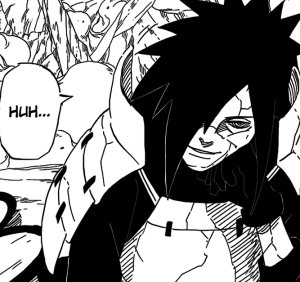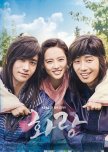Deze recentie kan spoilers bevatten
I really wanted to write a review as soon as the series had ended. Since spoilers are not tolerated in a review, I decided to do a pro/contra list in the comment section containing spoilers because there were concrete things that bothered me a lot and I needed to get them off my chest.
I started watching Hwarang because it is a historical drama and I was interested in the story. I am not an expert when it comes to history, my knowledge on Korean history is particularly poor, and so I read some articles on Silla/Hwarang to be prepared a bit. Of course you have to keep the fact in mind that this is a drama, thus fiction. Some things had to be dropped for sure, and some things had to be (re-)invented to create this drama. I’m saying this because I do not want you to have extremely high expectations on this show being historically accurate. It is not. Personally I did not mind, it wasn't TOO bad for me. I will not compare real historical events with this drama in the next lines for several reasons; instead, I will provide summarized impressions of mine and tell you about the things I liked and disliked.
First of all, what _is_ “Hwarang” in my eyes? It is a historical drama mixed with modern elements, comedy, and romance; action, silliness und suspense included. It is partially somewhat of a high school drama embedded in an earlier century I would say, because you will recognize some types and things related to school dramas for sure. The supporting characters are likeable and enjoyable; I wished some of them were more vivid.
At first I was slightly addicted to this show, and I even stopped watching other dramas because I wanted to concentrate on “Hwarang”. The cliffhangers made me wanting to go on with the next episodes badly, Sun Woo was cool, and so were Ah Ro, Ji Dwi and the supporting characters. I was interested in Sun Woo’s development, but I fell for Ji Dwi very soon, and at some point, I was mostly interested in his fate because I started to see the major flaws. My addiction disappeared, but it still was enjoyable.
I had the feeling the makers were not sure on which aspect they should focus on more: The lives of Hwarang and their impact on society, that one love story going on, political stuff in general, Sun Woo’s story or on Park Hyung Sik’s role. I am perfectly aware of the fact that, usually, a story has several plots being connected to each other at some point. I liked nearly all the plots within this series and nearly all of the characters involved, but the plots are unbalanced. I would not go so far as to claim the first episodes not being important or to count them as dispensable fillers, because that is not what they are at all, but at some point, so many significant things happen one after another that all previous events become blurry. Besides, the characters are not given time to reflect on certain things properly, at some point stuff is thrown at you in raw form piece by piece; sometimes it did not make any sense to me. Instead of 20 episodes, the makers should have either made 15 or 30 episodes to avoid a very slow first half being followed by a very fast-paced second half. As it stands, the relationship between fast and slow is deeply unbalanced and harder to digest.
The thing that annoyed me the most is the main couple. It is hard to explain without posting spoilers, it really is. I did not feel it, maybe you will, I don’t know. They would have been off better as separated individuals and not as a couple because the developers wasted too much time on them instead moving on with things that I considered more important.
I liked the equivalences and symbolism. You will stumble upon analogous and opposite equivalences between human beings, humans and things, humans and forces of nature. To me, these things along with symbolism are important because you expand the meaning to create a huge substantial net without organizing a verbal orgy. The “meaning of something” is relevant to this drama. Two other things I liked are the writers’ ability to generate deep, emotional scenes and character development. Unfortunately, all of this has to face neglect soon; equivalences and relationships are created and then thrown overboard; adequate character development is avaliable in small amounts only. Ji Dwi and Ban Ryu’s progression were the only ones to be witnessed visibly.
I would divide this series into two parts, part A and part B. In part A you get to learn the characters, their relationship among each other and their motivations. In Part B things become… beyond good and evil, let’s put it that way. I really wish there would have been more interactions between all Hwarang in part A. I wanted them to talk to each other more; I wanted them to get to know each other better.
The acting was good. Park Hyung Sik and Do Ji Han’s acting skills impressed me the most. Park Hyung Sik’s facial expressions, his speech, his postures and movements are indeed that of a man of high importance, his face is made for this kind of dramas, and Do Ji Han’s emotions were frighteningly real. The others did well too, except for Go Ah Ra (and Park Seo Joon) in some scenes. I had the feeling that this is not her kind of drama, somehow.
Please do not assume I am here to simply bash her or her contribution to this drama, after all she is one of the main characters and I gladly “ship” her with one of the male leads. As I said before I liked nearly all of the characters, but they aren’t all perfect (putting the fact aside that we did not get to know them well enough). Ah Ro appears to be plain in some scenes, which is a shame. I haven’t watched another movie starring the actress so far, so I do not want to judge her acting skills as a whole. Ah Ro started out as an interesting and funny character, but in the further course I realized she was poorly written. Sun Woo is a rather irrational and static being, too one dimensional for too long, too much overkill towards the end. I think I do understand why they portrayed Sun Woo the way he is. I still think the developers gave him too much credit, even though Ji Dwi and some other boys deserved it as much, but the ending was legit, at least.
I am not sure whether the contemporary musical numbers were chosen on purpose to remind the viewers that “Hwarang” is still a drama and not a historical documentary or such, but I considered the music to be really off-putting sometimes. Sure, after five to six episodes you learn to ignore it/get used to it forcefully, but, eh, it should not be this way.
The last criterion here is “rewatch value”. To be honest with you: The possibility of me rewatching a series with more than five episodes or so is low. But if I were a person who likes rewatching things from time to time in general, I would probably watch this show again one day just to see the scenes that touched me the most/I liked a lot.
I was not satisfied by the final couple and the final scene, apart from that the outcome was appropriate. I had a difficult time while ruminating about a proper rating. First it was 8,5, then 6,5, finally I decided to rate it as 7/10. Episode 19 was a complete mess, and the final scene was screaming bruh, cliché right in my face, they rushed the ending and too many questions remain unanswered, although it is suggested that you will get the answers.* Nonetheless I liked many things about this show.
To sum up, “Hwarang” offers entertainment, some likeable characters; the plots within are interesting but things are solved poorly. This drama is neither extraordinary nor a must-watch (unless you want to get to see your favourite) and has obviously some major flaws. You can say the makers had reliable tools, but they didn’t know how to use them properly. Give it a try if you want to; after all you can still skip stuff or simply drop this drama if this isn’t your cup of tea. I hope this review is helpful!
*I like open ends, and usually I am fine with some things left unanswered AS LONG AS it has a function and is well presented.
Vond je deze recentie nuttig?












